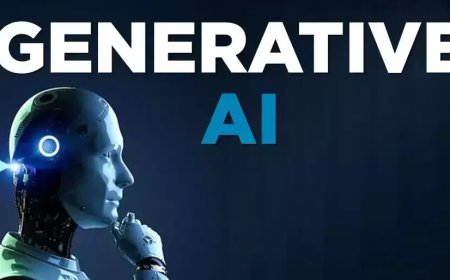Preparing Kids for Future Jobs with Technology
Prepare kids for future jobs by teaching coding, STEM, digital literacy, creativity, robotics, and communication skills with technology.

In today’s fast-evolving world, preparing children for future careers has become essential, especially with the growing influence of technology in every field.
As industries become more digital, the skills required for jobs are changing rapidly. Parents, teachers, and educators are now focusing on integrating technology into learning environments to help children develop the skills needed for the jobs of tomorrow. Here's how to ensure that kids are ready for the future with the right technological tools and knowledge.
1. Emphasizing Coding and Programming Skills
One of the most important skills for the future workforce is coding. Teaching children the basics of coding from an early age not only improves their problem-solving abilities but also familiarizes them with the digital world. Various apps and games have been developed to make coding fun and interactive for kids.
2. Encouraging Critical Thinking Through STEM
Science, Technology, Engineering, and Mathematics (STEM) education helps children develop critical thinking and analytical skills. By incorporating STEM activities into their daily learning, kids can better understand how the world works and apply logical thinking to solve real-world problems.
3. Promoting Creativity with Digital Tools
Technology allows kids to explore their creative side through tools like graphic design software, video editing apps, and music production platforms. Encouraging children to experiment with these digital tools can help them develop creativity and innovation skills that will be valuable in future careers.
4. Teaching Digital Literacy
In a digital age, being literate is no longer limited to reading and writing. Digital literacy, or the ability to use and understand technology, is essential. Teaching kids how to navigate the internet safely, evaluate online sources, and use digital tools efficiently will equip them for the technology-driven workplace.
5. Developing Communication Skills with Technology
With the rise of remote work and global teams, strong communication skills are critical. Tools like video conferencing platforms and collaborative software help children learn how to communicate effectively across digital platforms, which is a key skill for many future jobs.
6. Introducing Robotics and AI Early On
Robotics and artificial intelligence are transforming industries. By introducing children to robotics kits and AI concepts, we can prepare them for the advanced technologies they will encounter in future careers, giving them a head start in understanding automation and intelligent systems.
7. Fostering Teamwork Through Online Collaboration
Many future jobs will involve working in teams, often across different locations. Using collaborative platforms like Google Workspace or Microsoft Teams in school projects helps children learn how to work together effectively in a digital environment.
8. Building Problem-Solving Abilities with Gamification
Educational games that incorporate problem-solving tasks are an excellent way to engage children while building essential future job skills. These games challenge kids to think critically, adapt to new situations, and come up with solutions—all vital for future success.
9. Nurturing Adaptability in a Fast-Changing World
With technology evolving rapidly, adaptability is a crucial skill for the future. Encouraging kids to stay curious, learn new tools, and embrace change will help them stay ahead in an unpredictable job market.
10. Instilling Ethical Use of Technology
While technology offers many opportunities, it also comes with responsibilities. Teaching children about ethical behavior online, data privacy, and the impact of technology on society will help them make responsible decisions in their future careers.
By integrating these technological learning strategies, we can ensure that today's children are well-prepared for tomorrow's job market.




























